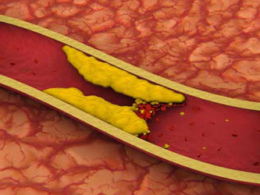Your pee is one of the most useful tools in diagnosing health problems. The color, smell, frequency, and density of your urine say a lot about the state of your health. Here are some ways you can tell what your pee is telling you.
Color
Urine has a variety of colors which can indicate your hydration levels, the food you’ve eaten, or perhaps an underlying disease. This is the simplest way to tell if your body is properly hydrated or if you need a visit to the doctor.
• Transparent or no color. Your body is well hydrated and you’re even drinking too much water. Cut back on your water intake.
• Pale straw color. This is the healthiest color for urine. This means you’re well hydrated and normal.
• Transparent yellow. This still means you’re normal and well hydrated.
• Dark Yellow. This is still normal but your body is not optimally hydrated. You should drink some water soon.
• Amber or honey. Your body is not getting the right amount of water. Drink some as soon as possible.
• Bright yellow. This could indicate that you’re consuming a lot of vitamin C or that you’re taking medications which cause your urine to turn into this color.
• Orange. This could mean a couple of things. It could indicate that your body is not getting enough water and so you should drink some now. It could also mean that you’ve consumed a lot of carrots or any other food in the orange family and may be due to food dye. Or it could already signify a liver or bile duct condition.
• Dark orange or brown. This color is a cause for concern. It could indicate severe dehydration so try to drink a lot of water. If the color persists, then it might mean you have bile in your urine or you could have liver disease. See you doctor if that’s the case.
• Pink or reddish. This may indicate that you’ve consumed red-tinted foods or beets, blueberries, rhubarb, or the likes. If not, it may indicate that you have blood in your urine, signifying several possible underlying diseases. See your doctor if that’s the case.
• Blue or green. This may be a result of food dye from something you ate or it could be from medications you’re taking such as laxatives, chemotherapy drugs, or vitamins. If you’re unsure of the cause, it would be best to see your doctor.
• Foamy or fizzy. It could simply be a harmless hydraulic effect but if it occurs in your urine frequently, it may indicate excess protein or a kidney problem. See your doctor if it happens frequently.
Odor
Healthy urine is expected to have a strong smell but there are out of the ordinary urine odors that may already indicate underlying health issues.
• Ammonia-like or foul. This may be due to the bacteria that cause urinary tract infection (UTI). If you experience pain during urination, fever, chills, and back pain along with the foul smell of urine, you may already have UTI. Consult your doctor to be prescribed an antibiotic.
• Sweet. Sweet-smelling urine is due to the excess sugar in urine which indicates diabetes.
• Mildew. Musty- or mildew-smelling urine may be due to certain metabolic disorders.
The food you eat such as asparagus and coffee may also cause an unusual urine odor and this is nothing to be worried about. See your doctor if the odor persists.
Frequency
Depending on your fluid intake, you may need to visit the bathroom six to eight times per day. The feeling of constantly having to go even without drinking excess fluid may indicate several possible causes such as:
• Overactive bladder. This means that the muscles in your bladder undergo frequent involuntary contractions.
• Urinary Tract Infection
• Interstitial cystitis. A chronic inflammatory condition of the bladder wall thereby causing irritation and painful urination without infection.
• Diabetes
• Kidney stones
• Benign Prostatic Hyperplasia (BPH). The growth of the prostate gland presses on the urethra thereby causing a variety of changes in urination such as urgency and frequency of urination.
• Neurological diseases. This includes stroke and Parkinson’s disease.
If you constantly have to go and you have difficulty holding it in, consult your doctor.









